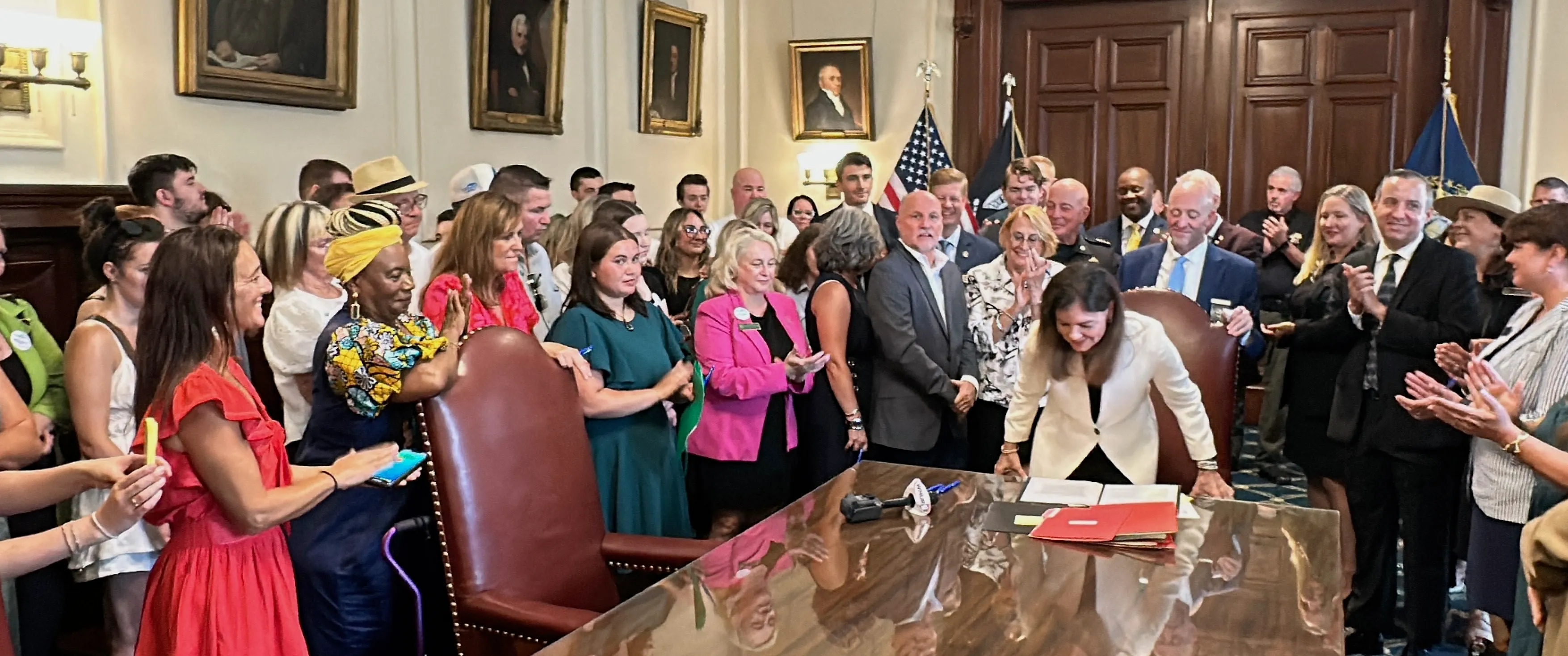WorldWE Legislative Priorities


At World Without Exploitation, we are dedicated to creating a future where sex trafficking and commercial sexual exploitation are eradicated and survivors are supported with dignity and justice. In partnership with The Jensen Project, Rights4Girls, and the National Center on Sexual Exploitation, our legislative priorities focus on advancing policies that protect individuals from exploitation, target demand, and ensure comprehensive, survivor-centered care. These initiatives are key to building a world free from trafficking.
Tap to expand:
The names Cyntoia Brown and Chrystul Kizer spent many months in the news. These are just two of the girls who were charged as adults for killing the men who raped and trafficked them.
When child victims engage in violence against their abusers, courts should have as much flexibility as possible in creating a trauma-informed and age-appropriate response, including suspending any sentence or transferring a child victim into the juvenile or child welfare system for treatment and services.
World Without Exploitation and our partner organizations have introduced bills in states across the country that would allow judges sentencing discretion in these cases. Often known as “Sara’s Law,”, the legislation is named in honor of a child sex trafficking victim who killed her trafficker and rapist and was then sentenced to life without parole. Thankfully, Sara is no longer incarcerated and has become a champion and advocate for passing these laws around the country.
These laws have recently been passed into law in Georgia, and Virginia. Illinois, California and Oklahoma have also passed child sex crimes victims protection laws. There is currently pending Sara’s Law legislation in New York, Washington, and Massachusetts.
Demand accountability laws in the context of sex trafficking refer to legislative measures aimed at reducing or eliminating the demand for commercial sex, which is the driving force behind sex trafficking. These laws target the individuals who purchase sex (the "demand" side) rather than just focusing on prosecuting traffickers or victims, and they seek to address the root cause of the trafficking by reducing the market for it.
Legislative initiatives to address demand across the U.S. include:
Texas, Montana, Oklahoma, and North Carolina have recently passed laws making sex-buying a felony. Other states that introduced legislation that would raise the penalties for sex buying include Kansas, South Carolina, Florida and New Jersey.
In summer of 2025, New Hampshire passed a bill that increases fines for convicted sex buyers and allocates those funds to victim services.
Rhode Island and New Jersey have bills pending that would increase the fines for convicted sex buyers and require buyer accountability education.

1 (888) 373-7888
Text HELP or INFO to 233733
English, Spanish, and 200 more languages
© World Without Exploitation
World Without Exploitation is a fiscally-sponsored project of the Tides Center, a 501(c)(3) nonprofit organization. Tides’ state-by-state fundraising disclosures are available at: www.tides.org/state-nonprofit-disclosures/
Survivor stories © The Voices and Faces Project Survivor photography: Lynn Savarese, Photographer and Co-Founder, New Abolitionists
Additional photography © Patricia Evans, The Voices and Faces Project • Natalie Naccache, Art Works for Change